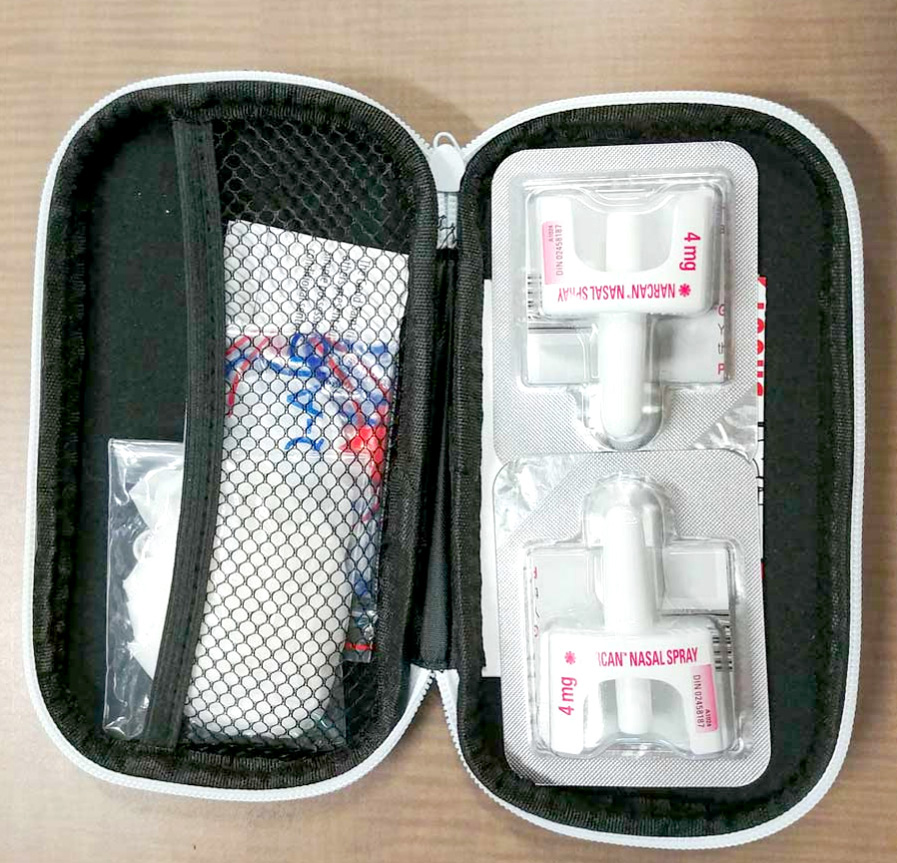WELLINGTON COUNTY – There were 99 opioid-related deaths in Waterloo, Guelph and Wellington County in 2021 – an increase in numbers Kristin Kerr, executive director of Stonehenge Therapeutic Community, calls “dramatic.”
The opioid epidemic was well underway before COVID-19 shuttered in-person therapy, forced people to work from home and clients to talk on the phone rather than meet in person.
The pandemic has only compounded the problem, Kerr said.
“There’s been an increase in the volume of people and an increase in the complexity of need,” she said.
“The compounding factor of the pandemic and the existing opioid epidemic has created a real cross-section [of clients seeking help.]”
Stonehenge began as a residential facility for people recovering from addiction some 50 years ago and has expanded services to include outreach, support coordination, withdrawal support, court support, overdose response, addiction clinics, rural services and supportive housing.
It has two brick-and-mortar rapid access addiction medicine clinics – one in Guelph and one in Fergus – and in June last year began a mobile clinic program “in response to the unique needs of the rural community,” Kerr said.
“We realized brick and mortar wasn’t enough.”
The clinics are for people who:
- want support to address substance dependence;
- need help to reduce cravings;
- are using to avoid withdrawal symptoms;
- have health concerns related to substance use; or
- need a place to talk about substance use without judgement.
The mobile unit operates the same as the clinics except it’s on wheels. That makes the clinic team – a counsellor and nurse practitioner – more accessible to people in the far reaches of the county.
The Fergus and Guelph locations also have a peer support worker – someone with lived experience of substance abuse.
“They offer a different kind of support; a valuable voice that’s different from the counsellor and nurse practitioner,” Kerr said.
While they normally accept walk-ins, because of the pandemic they are requesting people make appointments.
For assistance, call 1-844-722-2977.

Kristen Kerr, executive director of Stonehenge Therapeutic Community
For those who use illicit drugs, lockdowns and stay-at-home orders during the pandemic have meant drug users are using alone, which, for an already risky practise, is the very worst scenario.
“You shouldn’t be doing drugs alone,” Kerr said. “It’s safest to use with other people.”
She advised using smaller amounts at a time and keeping in touch with someone while using. And to reach out for help.
“It never hurts to talk to someone,” she said.
Kerr noted research collected at the end of 2020 indicates 37 per cent of Ontarians reported an increase in substance use since the pandemic began.
“Substance use is an effective coping strategy,” she said. “It can alleviate those feelings of anxiety and fear. But it’s not the healthiest strategy.”
She said after almost two years of having our lives turned upside down, if coping strategies aren’t working anymore, it might be time to try something new.
“Some days we can accept the new norm; other days it can be completely overwhelming,” she said.
“It’s time to cut ourselves some slack – to recognize that this is really hard and our expectations can’t be the same.”
And talk about your concerns with a trusted friend or family member, a colleague, or a professional, she said.
Those with substance abuse issues can call Stonehenge directly at 519-837-1470 or by email at info@stonehengetc.com. The website is stonehengetc.com.
Intake is also done through the Here 24/7 line at 1-844-437-3247.




